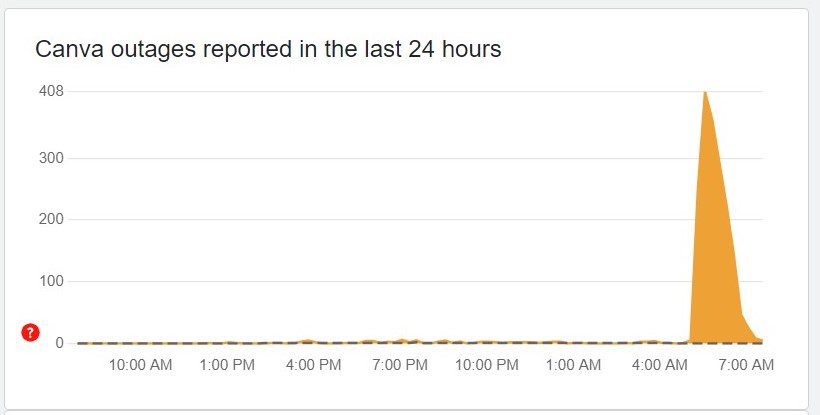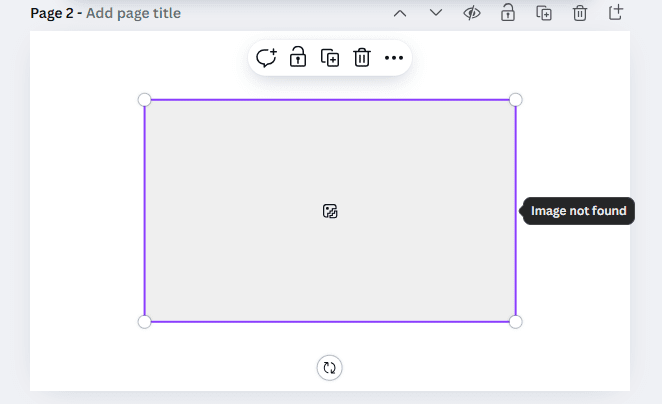A major Canva outage on Tuesday, 2025, disrupted millions of users worldwide, including Nigerians, as the design platform faced server failures, login errors, and project delays. Reports surged on Downdetector, peaking at over 400 complaints, with 51% of users unable to access the website and 35% struggling with server connections.

What Caused the Canva Outage?
The Canva outage began in the early hours, crippling core features like image uploads, design editing, and mobile app access. Businesses, students, and content creators voiced frustrations on social media, fearing missed deadlines and disrupted workflows.
Canva acknowledged the issue on X (Twitter), stating:
“We hear you! Our engineers are working to resolve the issue. Visit Canva Status Page for updates. Thank you for your patience.”
Global Reactions to the Outage
Users across Nigeria, the U.S., and Europe flooded social media with complaints:
- @arleehr: “Tried for 30 minutes to paste images. This is frustrating!”
- @Sorankurd22: “Is Canva down? I have clients to manage!”
- @neroyuuki: “Can’t upload files. Restarted devices—still nothing!”
Downdetector also logged text complaints:
- Seaba San: “App says I’m offline, but my internet works!”
- Cheryl: “Can’t download premium content despite having Pro.”
Impact on Businesses & Creators
As a top design tool, Canva’s downtime halted critical projects:
- Freelancers: Missed client deadlines.
- Students: Struggled with academic submissions.
- Small Businesses: Delayed marketing campaigns.
A Lagos-based content creator, @Debbie, tweeted:
“Server issues blocked image uploads. Fix this, @canva!”
Resolution & Lessons Learned
By 7:30 AM, Downdetector reports dropped to under 20, signaling recovery. Canva restored access gradually, but the outage highlighted reliance on cloud-based tools.
Key takeaways:
- Always save work offline.
- Monitor platforms like Canva Status Page for real-time updates.
- Explore alternatives like Adobe Express or Figma during outages.
Why Does This Matter?
The outage underscores the risks of centralized digital tools. For Nigeria’s growing tech ecosystem, such disruptions emphasize the need for diversified platforms and local alternatives like DesignStudio NG.














